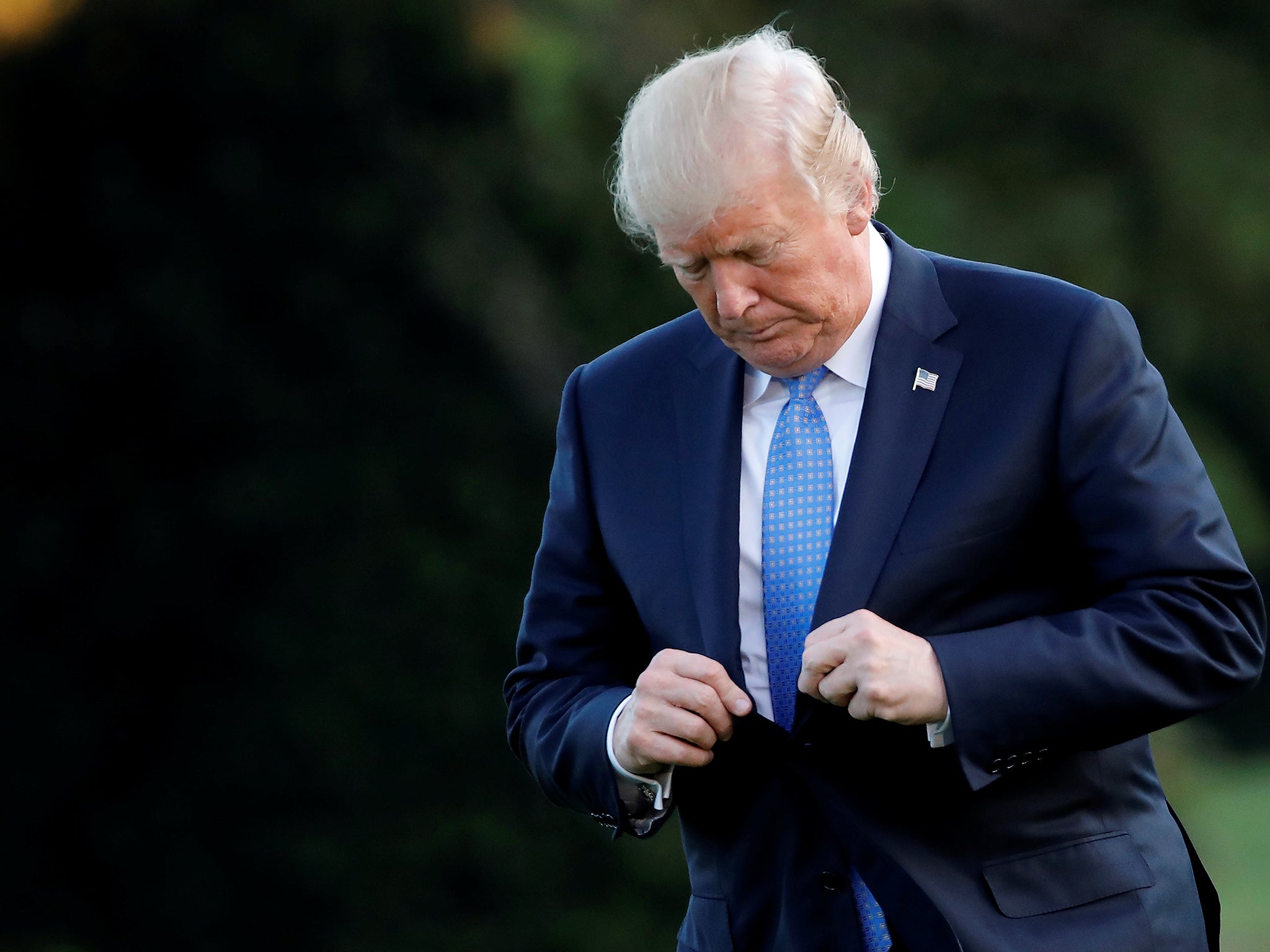Donald Trump is 'the most dangerous man in the world', claim leading psychiatrists and academics
'His madness is catching,' opponents assert

Your support helps us to tell the story
From reproductive rights to climate change to Big Tech, The Independent is on the ground when the story is developing. Whether it's investigating the financials of Elon Musk's pro-Trump PAC or producing our latest documentary, 'The A Word', which shines a light on the American women fighting for reproductive rights, we know how important it is to parse out the facts from the messaging.
At such a critical moment in US history, we need reporters on the ground. Your donation allows us to keep sending journalists to speak to both sides of the story.
The Independent is trusted by Americans across the entire political spectrum. And unlike many other quality news outlets, we choose not to lock Americans out of our reporting and analysis with paywalls. We believe quality journalism should be available to everyone, paid for by those who can afford it.
Your support makes all the difference.Donald Trump is “dangerously mentally ill”, a group of experts and commentators has claimed.
Led by Yale psychiatrist Dr Bandy Lee, 27 writers hold forth in a new book that also claims “his madness is catching”.
The Trump presidency, the authors assert, “has created unprecedented mental health consequences across our nation and beyond”.
But not all of the 27 are psychiatric or psychological professionals; the roster includes linguist and media analyst Noam Chomsky, and journalist Gail Sheehy.
The book appears to defy American psychiatry’s professional body, which says doctors commenting on the behaviour or alleged symptoms of a public figure violates a “fundamental principle” of consent.
Ms Sheehy wrote in her chapter: “Beneath the grandiose behaviour of every narcissist lies the pit of fragile self-esteem. What if, deep down, the person whom Trump trusts least is himself?
“The humiliation of being widely exposed as a ‘loser,’ unable to bully through the actions he promised during the campaign, could drive him to prove he is, after all, a ‘killer’.”
Dr Lance Dodes, a psychiatrist formerly of Harvard University, said Mr Trump exhibited “sociopathic qualities” and “a persistent loss of reality”.
And psychologist Philip Zimbardo, referring to Mr Trump’s decision to launch an attack on military installations in Syria after the Khan Sheikhoun chemical attack, said: “We believe that Trump is the most dangerous man in the world, a powerful leader of a powerful nation who can order missiles fired at another nation because of his (or a family member’s) personal distress at seeing sad scenes of people having been gassed to death.”
Dr Lee has long complained that psychiatrists seeking to warn of what she has called Mr Trump’s “dangerousness” are constrained by the American Psychiatric Association’s (APA) Goldwater rule, which states it is unethical for psychiatrists “to offer a professional opinion about an individual based on publicly available information without conducting an examination” in person.
She claims the association’s ethics committee “expanded” that position in a ruling earlier this year when it sought to answer the question of whether professionals should be allowed to diagnose or give their clinical opinion on public figures in the interests of national security—concluding that, broadly, they should not.
Dr Lee has argued the rule should not apply if doctors believe the President presents a risk to others. Dr Dodes has said he also rejects the Goldwater rule when it comes to Mr Trump, calling it “antiquated”.
The rule was instituted after Senator Barry Goldwater suffered speculation about his mental health during his 1964 presidential run. He later won a libel case against the magazine, Fact, that published the claims of psychiatrists regarding his fitness to be President.
In its ruling in March, the APA’s ethics committee said: “When psychiatrists offer medical opinions about an individual they have never examined, this behaviour has the potential to stigmatise those with mental illness.
“Patients who see a psychiatrist, especially their own psychiatrist, offering opinions about individuals whom the psychiatrist has not examined may lose confidence in their psychiatrist and/or the profession and may additionally experience stigma related to their own diagnoses.
“Specifically, patients may wonder about the rigour and integrity of their own clinical care and diagnoses and confidentiality of their own psychiatric treatment.
“Basing professional opinions on a subset of behaviour exhibited in the public sphere, even in the digital age where information may be abundant, is insufficient to render professional opinions and is a misapplication of psychiatric practice.
“When a psychiatrist comments about the behaviour, symptoms, diagnosis, etc., of a public figure without consent, the psychiatrist violates the fundamental principle that psychiatric evaluation occurs with consent or other authorisation.”
Dr James Gilligan, of New York University, argued in his contribution to the book that “the issue here is not whether President Donald Trump is mentally ill. It is whether he is dangerous. Dangerousness is not a psychiatric diagnosis.”
Nonetheless, the Amazon.com blurb for The Dangerous Case of Donald Trump says it explores “Trump’s symptoms and potentially relevant diagnoses to find a complex, if also dangerously mad, man”. Its subtitle is 27 Psychiatrists and Mental Health Experts Assess a President.
Dr Lee and others who have joined her cause have previously faced criticism for “throwing ethical standards out the window because they cannot accept the [2016 Presidential] election results”, in the words of Connecticut Republican party chairman JR Romano.
In February a leading psychiatrist, Dr Allen Frances, spoke out against “psychiatric name-calling” which he said was “a misguided way of countering Mr Trump’s attack on democracy”.
Join our commenting forum
Join thought-provoking conversations, follow other Independent readers and see their replies
Comments